

In honor of Black History Month, below is a brief list of laudable Black Americans whose commitment to America’s leadership in the world, through smart and effective investments in development and diplomacy, have helped advance our interests both at home and abroad.
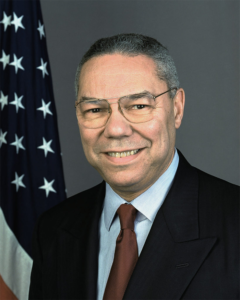
American foreign policy lost a national treasure with former Secretary of State Colin Powell’s passing last year. The first Black American to serve in the role of Secretary of State, Powell led efforts to dramatically increase the U.S. Foreign Service and strengthen our diplomatic readiness. In the years following his work in the U.S. Government, Powell continued to shape the diplomatic landscape by advancing the cause for peace and supporting a definition of American strength that included responding to global crises with humanitarian compassion. He served as USGLC National Chair for more than 15 years.
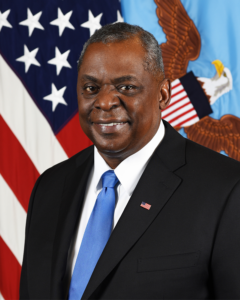
Lloyd James Austin III was sworn in as the 28th Secretary of Defense on January 22, 2021. In this role, he leads all branches of the military and serves the President in providing counsel on all things related to the Department of Defense. Austin has had a long and decorated career in the Armed Forces and has used this experience to help further U.S. diplomacy. When Austin served as Commander of U.S. Central Command, he led U.S. and Coalition efforts to promote global and national security by combatting ISIS in Iraq and Syria.
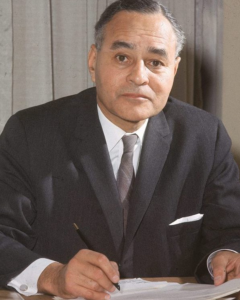
Ralph Johnson Bunche made an incredible contribution to American foreign policy, a legacy that lives on today. Bunche was a distinguished academic with a passion for racial justice in America. In fact, he turned down his first offer to serve in the U.S. Government in protest of the segregated housing conditions in Washington, DC at the time. Bunche’s contributions to U.S. foreign policy are prolific, including he was notably awarded the Nobel Peace Prize in 1950 for garnering armistice agreements between Israel and the Arab States in 1948. He also was a leading voice in the decolonization of African and Caribbean countries.
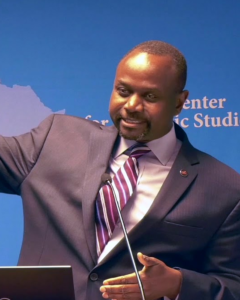
Mvemba Phezo Dizolele is a senior Fellow and Director of the Africa Program at the Center for Strategic and International Studies and lecturer in African studies at the Johns Hopkins School of Advanced International Studies. Prior to these positions, Dizolele spent time working with the United Nations in Nigeria, Ethiopia, and the Democratic Republic of Congo. He also spent time as a reporter embedded with peacekeepers in the Ituri district and the South Kivu province. Dizolele has brought decades-long experience to the table and has influenced foreign policy by testifying on African Affairs before various subcommittees of the two chambers of the United States Congress.
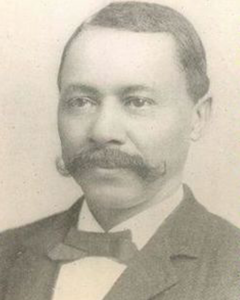
Ebenezer Don Carlos Bassett was appointed U.S. Minister to Haiti and the Dominican Republic by President Ulysses S. Grant in 1869. Bassett was the first Black American to serve as a U.S. diplomat anywhere in the world. Bassett paved the way, encouraging other Black Americans to join the diplomatic corps, notably Fredrick Douglass. A pioneer in U.S. diplomacy, Bassett was a powerful advocate for racial equality after the Civil War, bringing his dedication to justice into his work as an ambassador.
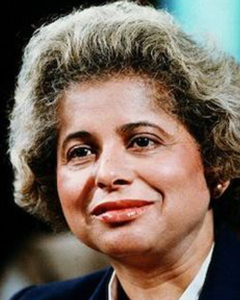
In 1965, Patricia Robert Harris made history as the first Black woman to serve as an American envoy. Appointed by President Lyndon B. Johnson, Harris also served as an alternate delegate to the 21st and 22nd General Assemblies of the United Nations. Under President Jimmy Carter, Harris was appointed as Secretary of Housing and Urban Development, the first Black woman to serve as a Cabinet Secretary and the first to be in line of succession to the Presidency. Harris served her country with a commitment to social justice and responsibility to the Black community both at home and abroad.
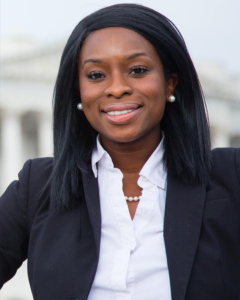
Laura Kupe is the Senior Adviser to the Deputy Secretary at the U.S. Department of Defense. Kupe is also a multilingual attorney with domestic and foreign policy expertise in think tanks and the federal government, including the U.S. House of Representatives, the Department of Homeland Security, and the White House. In her role at the Department of Defense, Kupe has made significant contributions to foreign policy as it relates to national security. She is also a fierce advocate for the inclusion of diverse communities and perspectives in U.S. foreign policy.
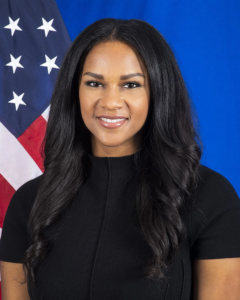
Jalina Porter was sworn in as Principal Deputy Spokesperson at the U.S. Department of State on January 20, 2021. A former Peace Corps volunteer and communications director in the U.S. House of Representatives, Porter has been recognized for her leadership in public service and humanitarian work. Porter brings this experience to her role at the U.S. Department of State, continually advocating for American leadership around the world.
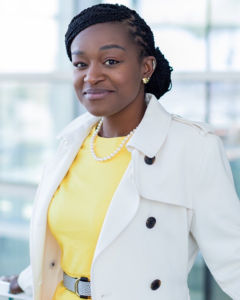
Camille Stewart has served the cause of American foreign policy in both the public and private sector, holding positions at the Department of Homeland Security, Deloitte, and Google. Today, Stewart serves as Global Head of Product Security Strategy at Google. Stewart’s knowledge of and passion for complex technology, cyber, national security, and foreign policy has given her the ability to make significant contributions to foreign policy from a contemporary lens.
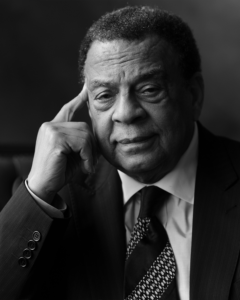
In 1977, Andrew became the U.S. Ambassador to the United Nations under President Jimmy Carter, a fellow Georgian, following a spectacular career in Congress. A long-time influencer of foreign policy in Africa, Asia, and Latin America, Young continued his support of human rights, particularly in Rhodesia, South Africa, and Angola. After his resignation from the Ambassadorship, Young spent significant time traveling nationally and internationally to build Atlanta’s reputation as a financial competitor on the world stage.
Notifications